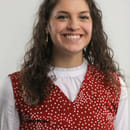Leadership is among the most desirable areas to possess great strength and mastery. At Furman more specifically, the importance of leadership in its many forms is especially prominent. However, more often than not, opportunities to demonstrate mastery and elevate leadership skills are limited to a select few who demonstrate this mastery of traditional leadership traits like the ability to influence and make decisions. As a result, individuals who have other leadership styles are left out.
This trend was especially felt in my own life during many of the early exposures to these opportunities as some of my own early experiences at Furman mirrored this kind of selectivity. During my first year, I found myself struggling to find sources where I had the opportunity to exhibit and improve my leadership skills in a way that was beneficial to not just myself but for the good of others. I have little doubt that other students suffer from this same degree of virtual invisibility as a result.
On campus, there are often very obvious sources of student leadership like student government or Shucker Fellows, among others. These individuals exist as student leaders and mentors in positions of high visibility. However, there are a multitude of other students like myself who operate in positions other than those well-broadcasted.
Resident Assistants are among those whose position and leadership are vital to the maintenance and function on campus, having some of the most direct impact of the success of campus life and student success. The role of RA’s goes far beyond enforcement of campus policy and making bulletin boards, these students are often the first to respond to crises of fellow students.
In my own time as a Resident Assistant I was tasked with being a therapist, parent, handy woman, and designated spider killer; sometimes all at once. Effective leadership in this context did not lie in my ability to decide what was best for the resident based on my own beliefs; rather, I needed to employ mastery and knowledge of the student and of the circumstance to help support and articulate solutions to a resident in dire need of my help.
By possessing the need to be needed in such a multitude of ways taught me not only how to lead, but how to relate and influence people; sources of strength I had not previously been able to harness.
Through my role as a resident assistant, I learned that effective leadership goes far beyond the ability to instruct others and act on behalf of a collective. It involves the ability to assist and demonstrate willingness to help others succeed, beyond the benefits to the individual leader.
One of the more overlooked traits of leadership is the role of effective communication and relatability. This is one unique characteristic of being an effective relational peer leader in various forms that I feel has learn a very important lesson while at Furman:
While it is far easier to seek out individuals with strong personalities or clear drive and determination that show clear mastery of the need of traditional leadership positions, truly great leaders look out for those who might not act and lead as they do.
The capacity to lead can exist within us all, but if traditional leaders are the only kind of leaders that are seen, they will be the only kinds of rigid leaders that will be modeled after.



